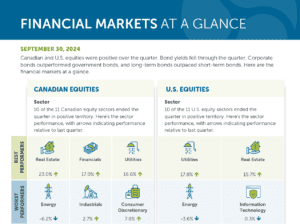4 Ways Financial Advice Is Changing: EY

What You Need to Know
Wealth managers and private banks will soon see a blending of people with digital technology to enhance the client experience.
Holistic advice that crosses traditional and new wealth products and services will be instrumental in aiding clients.
A democratization of advice will take place to help clients of all ages, incomes and financial knowledge levels.
Advisors who work with or for wealth managers and private banks may soon see shifts in how they interact with clients and provide their advisory services. Indeed, according to a new paper by Ernst & Young (EY), the blending of people and digital technology will allow them to “deliver wholly personalized advice.”
Changes will go even beyond that as competition intensifies and firms leverage both digitization and M&A to vie for a larger share of client assets.
Further, these firms will cut costs by “exiting non-core markets” and instead restructure and combine services with retail banks, according to the paper’s authors, Jan Bellens, Mike Lee, Valerie Nott and Mark Wightman.
As early as 2030, clients can expect an experience that “will be radically different from today,” the paper states.
How Things Will Change
Six factors will define these future changes:
Continually updated data-powered automated insights that adjust to needs and circumstance.
Client-tailored experiences.
Holistic advice that crosses traditional and new wealth products and services.
High levels of transparency and trust.
Stronger, clearer value creation for all stakeholders.
Enhanced global participation and accessibility.
The research suggests that wealth and private bank advisors can “build loyalty and revenue by demonstrating clear links between the fees and data that clients provide, and the service and value that they receive in return.”
There are four “strategic themes” that EY states will shape the future of advice:
1. The disruption of current client expectations.
This includes developing “personality portraits” that will help in understanding client needs and better shape models to accommodate them. These must also be adaptable to changes in client investment goals, ethical beliefs and digital appetites, which differ across the board.
For example, financial education and training is easier to do through digital learning, while retirement planning advice is less so. Further, baby boomers might lean more toward self-directed investment than millennials, although the latter are more open to digital adoption.
The paper suggests that firms will begin to use artificial intelligence to “interpret behavior, identify emotional insights and meet the right needs at the right time.”
2. The democratization of advice.
There will be a growing demand for more sophisticated products and services for mass affluent and high-net-worth segments, the paper states.
This includes a move toward direct indexing, private assets, fractional ownership and tokenization that provides tradable access to private markets and physical assets.
For example, 81% of ultra-high-net-worth investors have active funds, while 59% of HNW 50% of the mass affluent do. Only 14% of the mass affluent use alternative investments, compared with 81% of UHNW investors.
While only 14% of mass affluent investors use financial education, that is more than the very high-net-worth group (11%) and just below the UHNW (17%).




